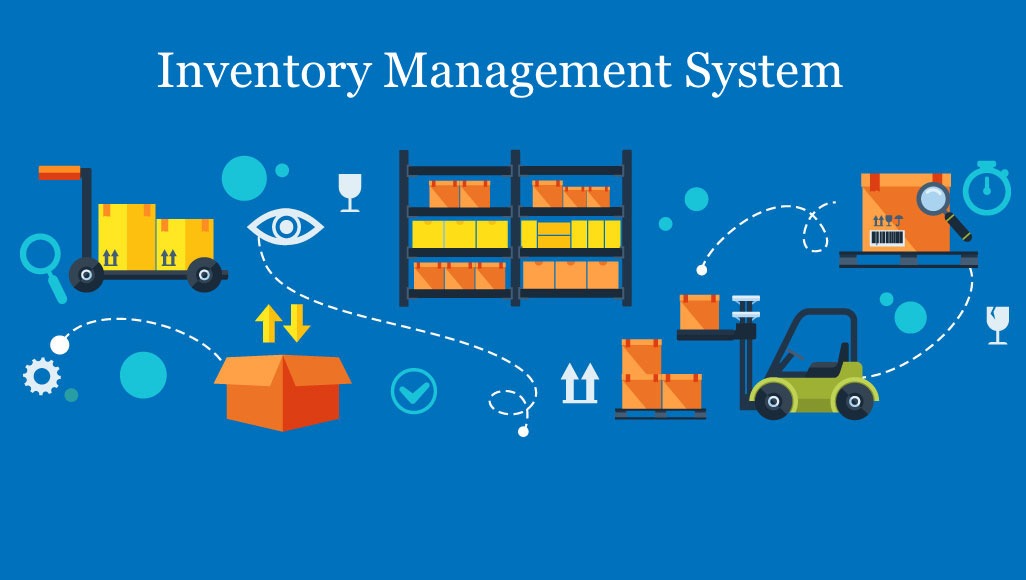Increase Efficiency with B2B Inventory Management Software
Introduction of B2B inventory management software
B2B inventory management software is a tool designed to help businesses manage and track their inventory in real time. This software is specifically designed for B2B companies that sell products to other businesses, rather than directly to consumers.
The software allows businesses to manage their inventory levels, track stock movements, generate reports, and automate the ordering process. It can also help businesses reduce waste, optimize their inventory levels, and increase their efficiency by streamlining their inventory management processes.
B2B inventory management software can be used by various types of businesses, including manufacturers, wholesalers, distributors, and retailers. It can be integrated with other software systems such as accounting and e-commerce platforms to provide a comprehensive solution for managing business operations.
Benefits of B2B Inventory Management Software
B2B inventory management software offers several benefits to businesses, including:
Improved inventory accuracy:
B2B inventory management software provides real-time inventory data, which can help businesses maintain accurate inventory levels and avoid stockouts or overstocking.
Increased efficiency:
By automating inventory management processes, businesses can save time and reduce errors associated with manual data entry, thus increasing efficiency.
Cost savings:
Effective inventory management can help businesses reduce the costs associated with excess inventory, stockouts, and lost sales.
Improved customer service:
With accurate inventory data, businesses can provide better customer service by ensuring that products are available when customers need them.
Better decision-making:
B2B inventory management software can provide businesses with data and analytics that can help them make informed decisions about inventory levels, reorder points, and pricing strategies.
Integration with other software systems:
B2B inventory management software can be integrated with other software systems, such as accounting and e-commerce platforms, to provide a comprehensive solution for managing business operations.
How B2B Inventory Management Software Increases Efficiency
B2B inventory management software increases efficiency in several ways:
Automating inventory processes:
B2B inventory management software automates manual inventory processes, such as data entry and order processing, which reduces errors and saves time.
Real-time inventory tracking:
With real-time inventory tracking, businesses can monitor inventory levels and stock movements in real-time, which allows them to make informed decisions about ordering and replenishment.
Customizable workflows:
B2B inventory management software allows businesses to customize workflows to match their specific inventory management processes, which streamlines operations and improves efficiency.
Barcode scanning:
Barcode scanning enables businesses to quickly and accurately track inventory movements and update inventory levels, which reduces errors and saves time.
Integration with other software systems:
B2B inventory management software can integrate with other software systems, such as accounting and e-commerce platforms, which reduces the need for manual data entry and increases efficiency.
Analytics and reporting:
B2B inventory management software provides businesses with data and analytics, such as inventory turnover, stockouts, and reorder points, which can be used to improve inventory management processes and increase efficiency.
Steps to Implement B2B Inventory Management Software
Implementing B2B inventory management software involves several key steps:
Assessing business needs:
Before implementing any inventory management software, businesses need to assess their inventory management needs and determine what features and functionalities they require in a software solution.
Choosing a software provider:
Once businesses have identified their needs, they need to research and select a software provider that offers the features and functionalities that match their requirements.
Planning for implementation:
Businesses need to develop a plan for implementing the software, which includes setting timelines, allocating resources, and determining who will be responsible for managing the implementation process.
Integrating with existing systems:
If businesses are using other software systems such as accounting or e-commerce platforms, they need to ensure that the inventory management software can integrate with those systems.
Configuring the software:
Businesses need to configure the software to match their inventory management processes and workflows, which may include setting up user accounts, defining inventory locations, and establishing reorder points.
Testing and monitoring:
Businesses should test the software to ensure that it works as intended and monitor its performance to identify any issues or areas for improvement.
Continuous improvement:
To get the most out of the software, businesses should continually assess and refine their inventory management processes to optimize efficiency and maximize the benefits of the software.
Futures of B2B Inventory Management Software
The future of B2B inventory management software looks promising, with several trends and advancements on the horizon:
Cloud-based solutions:
Cloud-based B2B inventory management software solutions are becoming increasingly popular, as they offer scalability, flexibility, and accessibility, making it easier for businesses to manage inventory across multiple locations and devices.
Artificial intelligence and machine learning:
B2B inventory management software is likely to incorporate more artificial intelligence and machine learning capabilities in the future, enabling businesses to optimize inventory levels and make more informed decisions about ordering and replenishment.
Internet of Things (IoT) integration:
IoT devices, such as sensors and RFID tags, can be integrated with B2B inventory management software to provide real-time data about inventory levels, movements, and locations. Which can improve inventory accuracy and reduce errors.
Mobile optimization:
B2B inventory management software will likely become more optimized for mobile devices, allowing businesses to manage inventory on the go and providing access to real-time inventory data from anywhere.
Predictive analytics:
B2B inventory management software will likely incorporate more predictive analytics capabilities, enabling businesses to anticipate inventory needs and optimize inventory levels to avoid stockouts or overstocking.
Factors to Consider When Choosing B2B Inventory Management Software
When choosing B2B inventory management software, businesses should consider several factors to ensure they select a solution that meets their needs and requirements.
Scalability:
Businesses should choose a solution that can scale with their business needs, allowing them to add new users, locations, and inventory items as their business grows.
Features and functionalities:
Businesses should identify their inventory management needs and select a solution that offers the features and functionalities required to manage their inventory effectively. Some common features to consider include inventory tracking, order processing, reporting and analytics, and integration with other software systems.
User interface and ease of use:
The user interface should be intuitive and easy to navigate, allowing users to quickly and easily perform tasks such as adding new inventory items or processing orders.
Mobile optimization:
Businesses should consider a solution that is optimized for mobile devices, enabling them to manage inventory on the go and access real-time inventory data from anywhere.
Integration capabilities:
The solution should be able to integrate with other software systems such as accounting or e-commerce platforms, to reduce manual data entry and improve efficiency.
Security:
The solution should have strong security features to protect inventory data. Such as user access controls, data encryption, and secure data transfer protocols.
Support and training:
The solution provider should offer adequate support and training to ensure that businesses can effectively use the solution and maximize its benefits.
Cost:
Businesses should consider the cost of the solution and weigh it against its features and functionalities to ensure that it provides good value for money.
Conclusion
In conclusion, B2B inventory management software provides businesses with an efficient and effective way to manage their inventory, streamline their operations, and reduce costs. With features such as inventory tracking, order processing, and reporting and analytics, businesses can gain visibility into their inventory levels, make informed decisions about ordering and replenishment, and optimize their inventory levels to meet customer demand. Implementing B2B inventory management software involves several key steps, including assessing business needs, choosing a software provider, planning for implementation, configuring the software, training users, testing and monitoring, and continuous improvement.
As technology advances, B2B inventory management software is expected to incorporate more advanced features. Such as artificial intelligence, machine learning, IoT integration, and predictive analytics, providing businesses with even more sophisticated tools for managing their inventory. By considering factors such as scalability, features and functionalities, user interface and ease of use, mobile optimization, integration capabilities, security, support and training, and cost, businesses can select a B2B inventory management software solution that meets their needs and helps them achieve their business goals.
What makes your inventory management services unique?
Our inventory management services are tailored to fit the needs of your business. We use state-of-the-art technology to track inventory levels in real time, which ensures that you always have the products you need when you need them. Our team also provides personalized support and training to help you get the most out of our services.
How can B2B Inventory Management help me save time and money?
Our inventory management system streamlines the process of tracking and ordering products, which can save you time and reduce the risk of overstocking or understocking. We also offer competitive pricing on our products, so you can be sure you’re getting the best value for your money.
Do you offer custom solutions for businesses with unique inventory needs?
Yes, we understand that every business has unique inventory needs, and we offer customizable solutions to fit those needs. Our team will work with you to develop a tailored inventory management plan that meets your specific requirements.
Can I access my inventory data remotely?
Yes, our inventory management system is cloud-based, which means you can access your inventory data from anywhere with an internet connection. This makes it easy to manage your inventory on the go and keep track of your products in real time.
What is your service area and how can I get in touch with you?
We offer our inventory management services to businesses throughout the local area, and our team is always available to answer any questions you may have. You can reach us by phone, email, or through our website to schedule a consultation and learn more about how we can help your business.
How can B2B Inventory Management help me optimize my supply chain?
Our inventory management system provides valuable insights into your supply chain, including demand forecasting and inventory turnover rates. This data can help you make informed decisions about when to reorder products, which suppliers to work with, and how to optimize your inventory levels for maximum efficiency.
Can you help me integrate my inventory management system with my e-commerce platform?
Yes, we offer integration services to help you streamline your inventory management process and improve your e-commerce operations. Our team has experience working with a variety of e-commerce platforms, and we can help you choose the right solution for your business.
How do you ensure the accuracy of my inventory data?
We use barcode scanning and other advanced technology to ensure the accuracy of your inventory data. Our system tracks every movement of your products, from the time they arrive at your warehouse to the time they are sold or shipped out.
How can I track my inventory levels in real-time?
Our inventory management system provides real-time updates on your inventory levels, so you can always know exactly how much of each product you have on hand. You can access this information through our cloud-based platform or our mobile app.
What kind of reporting and analytics do you offer?
We offer a range of reporting and analytics tools to help you make data-driven decisions about your inventory management strategy. Our system generates custom reports on inventory levels, sales trends, and other key metrics, and our team can help you interpret this data and make informed decisions about your business.
Contact us for More Services, Which we Provide
7) Chat Service
10) Web Hosting
Contact Us
+91-9380797662
info@emazel.com
Author


